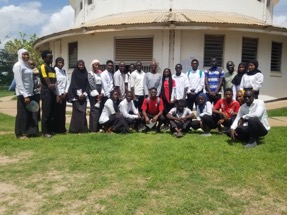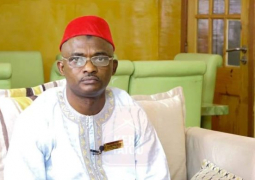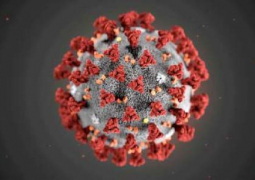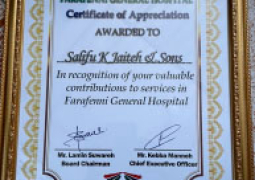
Kick starting the event, NAN National Outreach Coordinator Bubacarr Sambou introduced the Network to the students, charting its origins from the TRRC period and explaining the rationale for its establishment and the importance of its role in the post-TRRC transitional justice process. The idea and practice of Never Again, launched as a nationwide campaign by the TRRC Secretariat back in 2018, he said, must not be allowed to die down in Gambian society. He urged students to get up and be counted in the fight against a repetition of the impunity and human rights abuses that occurred in the country under the former regime.
Speaking on why students should say never again, NAN coordination team member Felix Sambou elaborated on Bubacarr Sambou’s remarks by emphasising the need for students to understand what the Never Again Campaign is all about, to develop good character and to guard against the common tendency to get corrupt and irresponsible when they hold public office responsibilities. Felix pointed out that as future teachers of civic education in Gambian schools, it is important for the Civic Club members to get proper training on the subject so they can better train their future students. He opined that while it was good that the Gambia Government has introduced civic education into the school curriculum, they did not adequately train teachers in preparation for teaching the subject, a point earlier mentioned by Bubacarr Sambou in his remarks.
Speaking on what he called the ‘three levels of civic education’ (individual, national, and global), NAN National Coordinator Dr. Baba Galleh Jallow said the primary goal of civic education is to help create a good human being who is also a good and responsible citizen. He said civic education starts at the family level where children are taught good manners and the acceptable norms of communal and social behavior. In addition to this, children should be taught civic education in schools so that they know their country’s constitution, their rights and responsibilities, and grow up to be informed citizens who can hold their leaders accountable.
At the level of the nation, Dr. Jallow said a country as small as The Gambia should be treated as one big college or university campus, with a well-established and functional Institute for Gambian Studies given the responsibility to raise the civic awareness of all Gambians on an ongoing basis. He said such an Institute will recruit qualified Gambian professionals, of which there is a glut, to constitute a core full time faculty of civic educators for the nation-school. He said every Gambian citizen should be familiar with the structures and functions of the nation-state system that governs their lives, especially the separation of powers and the rule of law, which were virtually non-existent under the Jammeh dictatorship. He further told students that because The Gambia is embedded within an international system and comity of nations, all citizens should have at least a basic understanding of some of the most important international organisations, including the United Nations, the African Union, ECOWAS, and the European Union. He contended that Gambians can very well understand these institutions if properly described to them in their own indigenous languages.
Responding to a question on why the rule of law was set aside in favor of “the rule of man” during the Jammeh dictatorship, Dr. Jallow told students that it came down to two main factors: One was that we had an irresponsible leadership that had no respect for the rule of law and did what it wanted because they knew (or thought) they could get away with it; and the second was that the majority of Gambians were not politically informed and empowered enough to hold their leaders accountable. Responding to another question on why people get corrupt once they get into public office, Dr. Jallow contended that in fact, power does not corrupt; it merely uncovers the type of person an individual really is. Genuinely good and honest people will not suddenly turn bad and corrupt on account of ascending to public office. In effect, public office merely gives inherently corrupt individuals the opportunity to show their true colors. Many students chipped in with other questions and contributions from the floor.
The Gambia College Civic Club engagement was one of the liveliest and most interactive the ‘Never Again Network’ has held so far. Ever since its launching in late 2022, the Network has engaged several schools and one local community in conversation over why Gambians, especially young Gambians, should say Never Again to dictatorship, political impunity, and rampant human rights violations of the sort that happened in the country under the ousted Jammeh regime.





